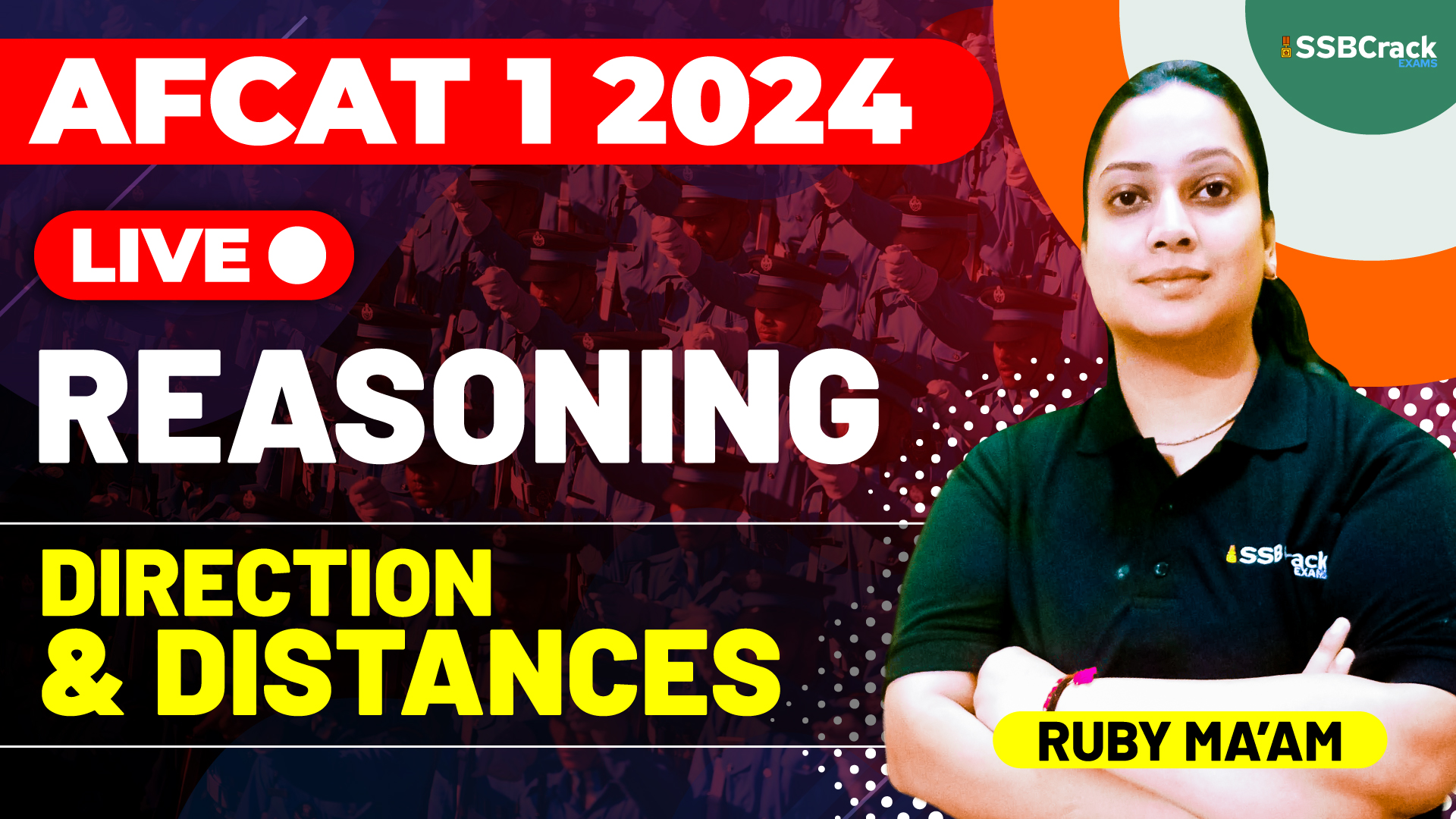The Air Force Common Admission Test (AFCAT) is a highly competitive examination that assesses the aptitude and intelligence of candidates aspiring to join the Indian Air Force. Among the various sections of the AFCAT exam, the reasoning section holds significant importance. One specific area that often poses a challenge for many aspirants is reasoning in directions and distances. This skill is crucial not only for tackling reasoning questions but also for practical applications in the real world, especially in the field of aviation.
Direction & Distances
The Air Force Common Admission Test (AFCAT) is a highly competitive examination that assesses the aptitude and intelligence of candidates aspiring to join the Indian Air Force. Among the various sections of the AFCAT exam, the reasoning section holds significant importance. One specific area that often poses a challenge for many aspirants is reasoning in directions and distances. This skill is crucial not only for tackling reasoning questions but also for practical applications in the real world, especially in the field of aviation.
Understanding the Basics:
Reasoning in directions and distances involves the ability to comprehend spatial relationships and navigate through given directions. Questions in this category may require candidates to determine the shortest distance between two points, identify the direction of a moving object, or analyze the position of an aircraft relative to a specific point.
Importance for AFCAT:
- Navigation Skills: In the Air Force, precision in navigation is paramount. Pilots and ground staff must have a strong grasp of directions and distances to chart efficient flight paths, conduct aerial maneuvers, and ensure the safety of both personnel and aircraft. A solid foundation in reasoning in directions and distances is, therefore, crucial for success in AFCAT.
- Quick Decision-Making: Military operations, including those of the Air Force, often require swift and accurate decision-making. Reasoning in directions and distances enhances cognitive abilities, enabling aspirants to analyze complex scenarios rapidly and make precise decisions – a skill vital for those aspiring to serve in the Air Force.
- Problem-Solving Aptitude: The AFCAT exam assesses a candidate’s problem-solving abilities, and reasoning in directions and distances is an integral part of this evaluation. Questions in this category challenge aspirants to think logically and analytically, traits essential for military personnel who may encounter unexpected challenges in the field.
- Aptitude for Spatial Awareness: Operating in three-dimensional space, as is common in aviation, demands a heightened sense of spatial awareness. Aspirants who excel in reasoning in directions and distances develop a robust understanding of spatial relationships, contributing to their effectiveness in tasks involving coordination, communication, and strategic planning.
Tips for Mastering Reasoning in Directions and Distances:
- Practice Regularly: Regular practice is the key to mastering any skill. Solve a variety of problems related to directions and distances to enhance your proficiency. Numerous AFCAT preparation resources, including practice papers and online quizzes, are available to help you sharpen your skills.
- Understand Concepts: Develop a deep understanding of basic concepts such as cardinal directions, bearings, and distance measurement techniques. This understanding will serve as a solid foundation for tackling more complex problems in the AFCAT exam.
- Use Visual Aids: Visual aids, such as diagrams and maps, can greatly assist in solving problems related to directions and distances. Develop the ability to visualize spatial relationships, as this skill is invaluable for both the AFCAT exam and real-world applications in the Air Force.
- Time Management: AFCAT is a time-bound exam, so efficient time management is crucial. Practice solving reasoning questions in directions and distances within a stipulated time frame to improve your speed and accuracy.
Conclusion:
Mastering reasoning in directions and distances is not only essential for excelling in the AFCAT exam but also for developing skills that are highly relevant to a career in the Indian Air Force. Aspirants who invest time and effort into honing these abilities will not only increase their chances of success in the AFCAT but will also be better prepared for the challenges they may encounter in the dynamic and demanding environment of the Air Force.







